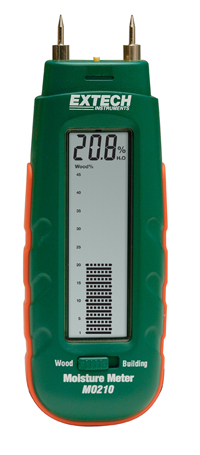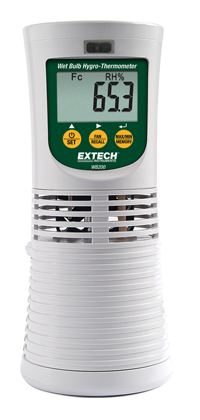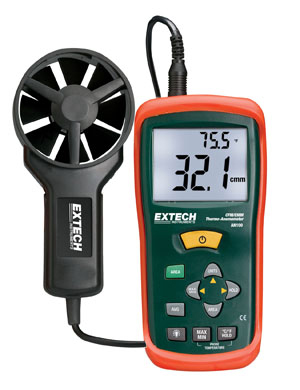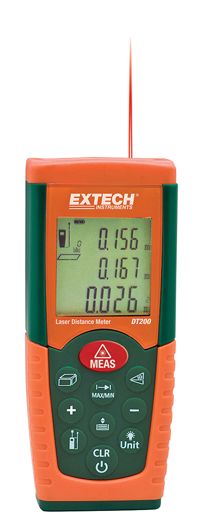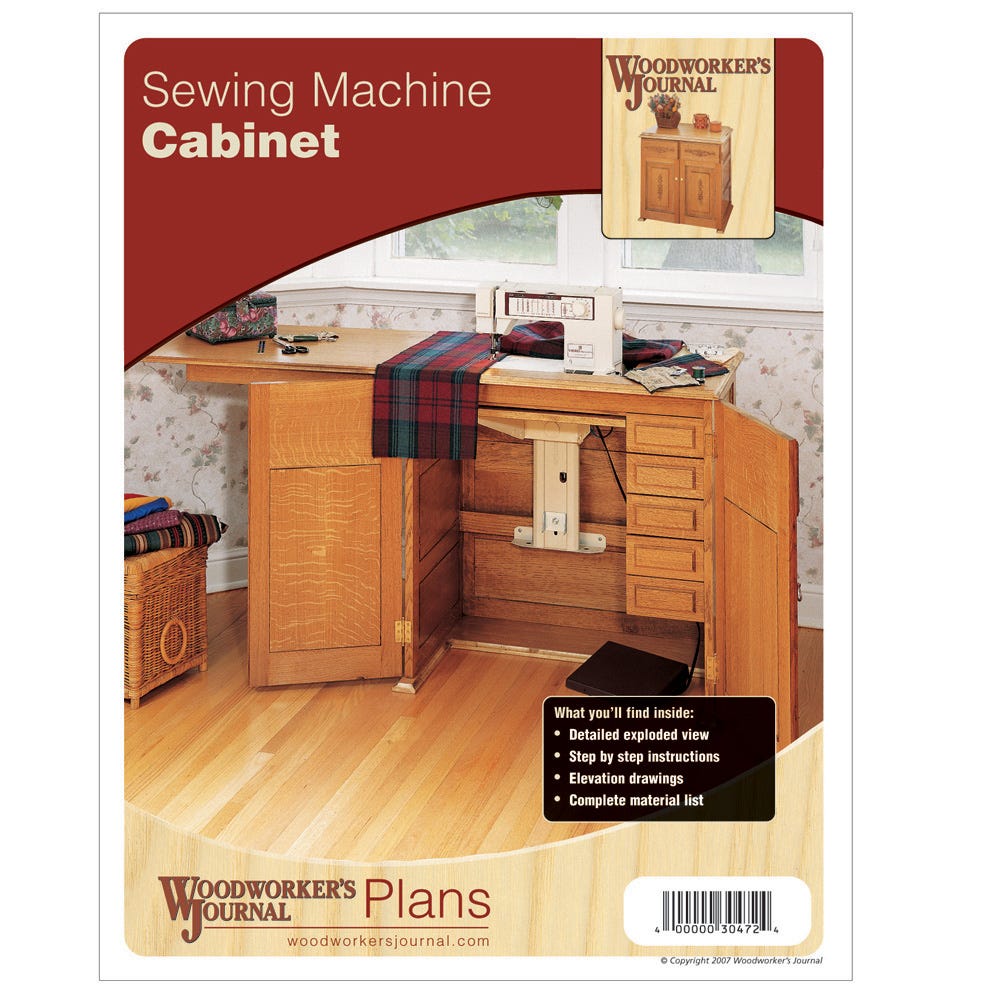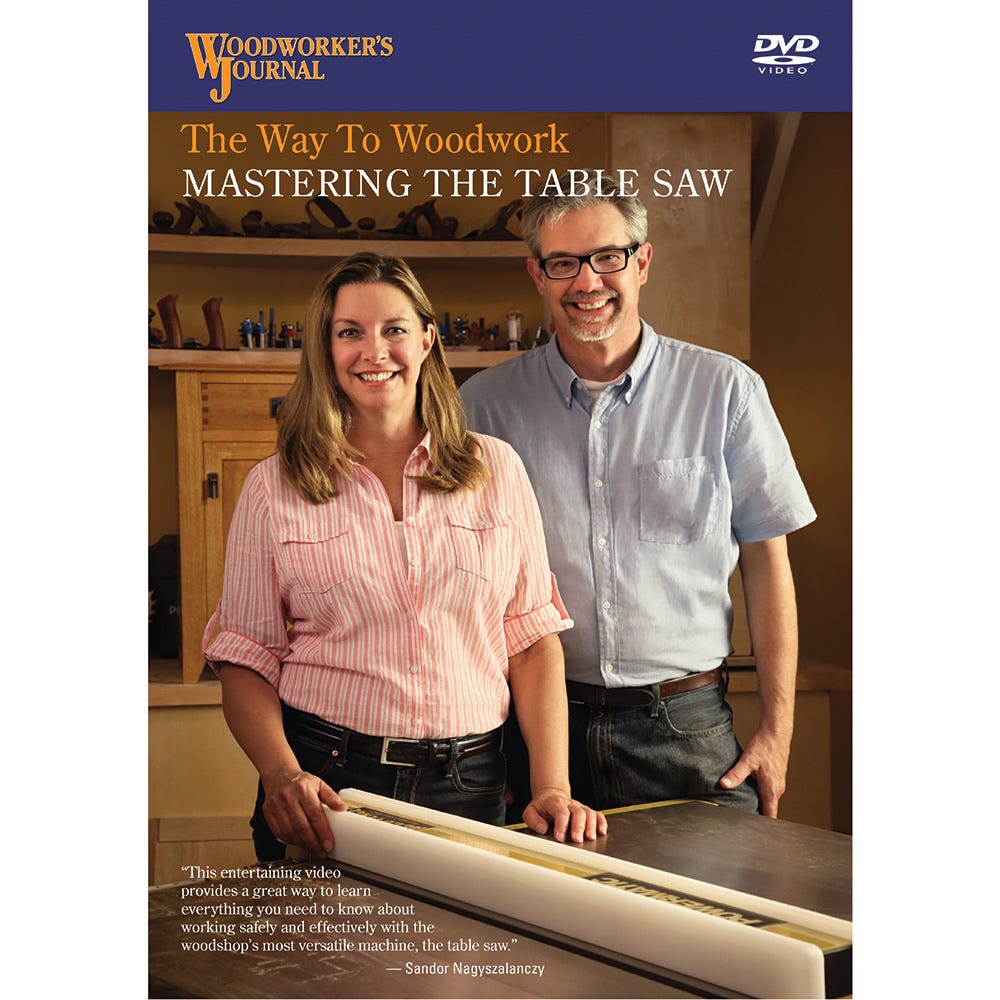
If you’ve read our overview of “Moisture Meters in the Home Shop” (“Today’s Shop,” April print issue, p. 64), you know that it’s a good idea to keep tabs on the moisture content of your lumber. And if that suggestion has motivated you to consider buying a meter for your woodworking, there’s another source we’d like to add to your list of options: Extech Instruments. Extech manufactures some 15 different categories of portable meters, including options that measure light, sound, temperature, humidity, airflow, RPMs and water quality.
After more than 40 years in this business, the Waltham, Massachusetts-based company, now owned by FLIR Systems, serves a broad clientele that includes both industry and consumers. “One of our larger markets is electrical,” says Sam Ruback, product specialist and a member of the engineering department at Extech. “Our company manufactures a variety of multimeters, clamp meters and electrical testers. But we also provide instruments for environmental testing, as well as for the HVAC industry and inspections.”
Ruback says Extech offers test meters that can evaluate most everything from massive turbine engines using multi-thousand dollar borescope systems, “all the way down to a $5 or $10 plug checker that a home inspector or home owner can use to verify that outlets are wired correctly. It really spans a huge gamut.”
I asked Sam for some product recommendations that would appeal to us hobbyist woodworkers, and he offered several. Ruback is a woodturner and also spent time as a carpenter in Maine and a boat-builder with his father. Although he kidded that he keeps more instruments in his shop than most people probably do, he’s found practical woodworking and DIY applications for a moisture meter, hygrometer, tachometer, anemometer and laser distance meter.
“We offer both pin and pinless moisture meters, but for the hobbyist, I think a pin-style meter offers more consistency than the pinless style, especially if you are working with rough stock that has uneven surfaces. However, it will leave a pair of tiny pin holes in the test areas.” He recommends Extech’s MO210 Pocket Moisture Meter with pins, which sells for $99.99, as a good entry-level meter for home-shop use.
Aside from lumber “wetness,” the amount of moisture in your shop’s air is also a concern worth monitoring. A hygrometer can help you keep tabs on relative humidity levels in the shop, which impacts both your lumber and whether or not rust will be an issue on your tools. Ruback says that while you can certainly buy very inexpensive hygrometers at a discount store or home center, they contain a capacitive sensor that depends on air moving across the sensor plate. It can be contaminated easily by dust buildup, and then will provide inaccurate readings. While this style represents the latest technology, it isn’t actually the best choice for a woodworking shop.
Sam says a better solution is a hygrometer with an internal fan that draws air across the sensing element. Extech offers the WB200 Wet Bulb Hygro-Thermometer($110). It uses more traditional technology that takes both wet and dry temperature readings, then derives relative humidity from that difference. The unit is built for dusty conditions and can be set with an alarm to warn of high or low temperature and humidity readings. “It’s accurate to plus or minus three percent relative humidity, as compared with five to seven percent deviation of other off-the-shelf, budget hygrometers when they are working properly.”
It never occurred to me that woodworkers might benefit from an anemometer, which measures wind velocity. But Ruback has used one in the past to check the efficiency of his shop’s dust collection system. A meter such as the AN100 model ($150) has a separate wind vane that you can place at the entry point of a dust collection “drop” to determine how much air is being drawn in, and it measures in cubic feet per minute (CFM), so the readout is consistent with dust collection nomenclature and won’t require further conversion. “An anemometer can help you determine if you’ve got a loose connection or fitting somewhere in your setup as well as whether or not your dust collector and system could handle additional drops for more tools. It will also help you compare the airflow efficiency of the drops in your ducting system so you can use those with higher suction for machines that require the most air,” Ruback says. “In my situation, for instance, I learned that poor dust collection performance was due to a loose connection in my ducting.”
Sam also uses a tachometer in his shop from time to time. It could be helpful if, for instance, you have a lathe that doesn’t have a digital speed readout, so you can accurately determine how fast the chuck or workpiece is spinning. If you refurbish an old piece of machinery, a tach could make it easy to see if the original motor is spinning at the correct speed for the blade or cutter required. Extech’s RPM33 Tachometer sells for about $200, and it can take either “point of contact” measurements using a little wheel on the device, or with an internal laser that reads a piece of reflective tape affixed to the contact surface of the spinning apparatus.
You may have found that sometimes a tape measure can be difficult to use. A laser distance meter could be handy for taking measurements when you can’t easily see where the end of your tape measure needs to be placed, or if you’re working alone and need to span a distance with a tape while standing on a ladder or measuring other places with difficult access. “Every time you swear at the limitations of your tape measure, you probably need a distance meter,” he adds. Distance meters from Extech start at around $130 with the DT200 model.
Precision measuring equipment may not be something we need in our shops on a daily basis, but it’s helpful to know where to find them when we do. Visit Extech’s website to learn more about these and the company’s other many instrument categories. They are available for purchase online or through a network of dealers nationwide.
